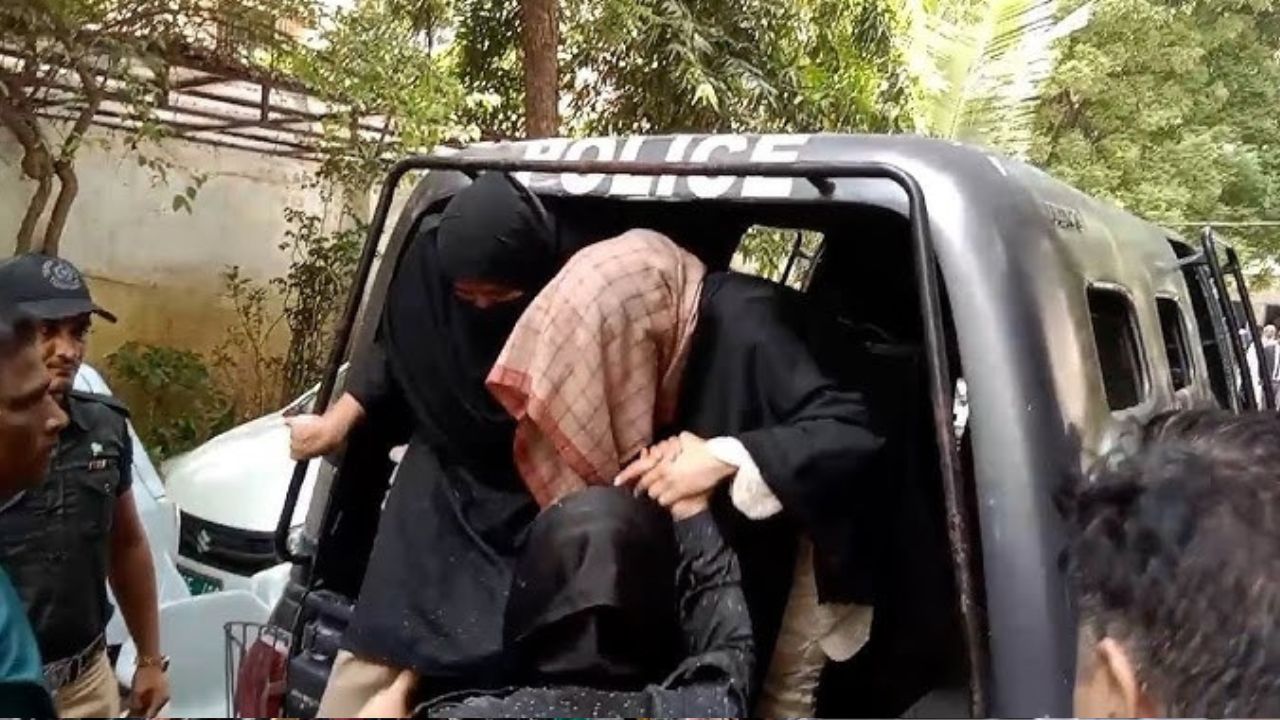Everyone is watching the aftermath of the Karsaz accident that took place in Karachi earlier this week, when Natasha Danish’s speeding SUV collided with several vehicles, killing a father and his daughter on a motorbike and injuring five others. Post-accident videos circulating on social media show Natasha being surrounded by a large, irate crowd as security guards protected her and took her into custody. Natasha appeared disoriented. Meanwhile, people called for her death as the two victims lay dead on the road—a scene that could have ended differently without police and rangers.
While the case is underway in court, people have started their own speculative investigations, suggesting Natasha’s disorientation might be due to alcohol or drugs, and that because she is married into an affluent family, she will get away with it all. On the other hand, her lawyer states she has been undergoing medical treatment for poor mental health for the past five years, describing her as a “psychological patient.”
Natasha should not have been driving, and the loss of 27-year-old Amna and her father is irreplaceable. But would it have been fair if the mob had taken the law into their own hands?
While the majority believe Natasha, being an ‘ameerzaadi,’ must pay with her life, the legal nature of the accident remains undecided.
What does the law say?
According to the Pakistan Penal Code 1860, anyone committing qatl-i-khata by “rash or negligent driving shall, having regard to the facts and circumstances of the case, in addition to diyat, be punished with imprisonment of either description for a term which may extend to ten years.”
Similarly, under Islamic law, the punishment for murder, homicide, or injury depends on qisas or diyat, i.e., corresponding punishment for the crime or monetary compensation for the victims or their legal heirs.
In this case, it was not pre-meditated murder. No prior connection between the driver and the victims has been established to suggest that Natasha set out to murder Amna and her father. It was a terrible accident, one that took the lives of two valued citizens and Natasha will have to face the law for the crime she has committed.
Why do people feel the need to enforce the law themselves despite existing rules and regulations? Is this a reflection of growing frustration among the masses, who have repeatedly seen the elite evade justice for crimes? Despite the fact that this case is nothing like the murder of Noor Mukkadam and Shahzeb Khan, Noor who was tortured and murdered by Zahir Jaffer, and Shahzeb who was mercilessly shot by Shahrukh Jatoi, comparisons are continuously – and wrongly – being made on social media.
Could the comparisons explain why people have reacted so violently to Natasha, who was driving an expensive car and dressed in gym clothes, visibly disoriented? Would the reaction have been different to a ‘modestly dressed’ individual who might have been – and looked – less affluent?
Until the social and economic divide in our country is addressed, justice will remain questionable. The rich and powerful are often seen as above the law, while others are seen as seekers of elusive justice. Consequently, cries for ‘mob justice’ and demands to ‘hang her in the city center’ in our social media world will persist. Natasha must face the consequences of her actions, whether accidental or not. She must be given a fair trial and be sentenced for her crimes based on her actions but not on her background.







